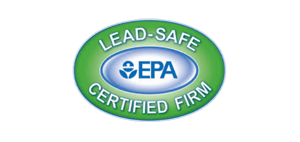Water damage is a common issue that many property owners face. Whether it’s due to a burst pipe, a leaky roof, or a natural disaster, water damage can have a significant impact on the structural integrity and safety of your home. While some water damage may be temporary and easily fixable, other cases may result in permanent damage.
But how do you know if water damage is permanent? This is an essential question that every property owner should be able to answer. In this section, we will examine permanent water damage and the signs that indicate lasting harm to your property. By learning to recognize these signs, you can take appropriate action to address the issue and safeguard your home.
Key Takeaways:
- Water damage can be temporary or permanent.
- Recognizing the signs of permanent water damage is crucial in protecting your property.
- By understanding the causes, effects, and appropriate actions to take, you can mitigate further damage and restore your property to its pre-damaged condition.
- Professional assessment may be necessary in some cases to determine the extent of the damage.
- Timely action is essential in addressing water damage to prevent further harm to your property.
Understanding Water Damage: Causes and Initial Effects
Water damage is a common problem that can be caused by a variety of factors. Some of the most common causes of water damage include:
- Broken or leaky pipes
- Flooding
- Clogged drains or gutters
- Improperly installed or malfunctioning appliances, such as washing machines or dishwashers
- Natural disasters, such as hurricanes or heavy rainstorms
Regardless of the cause, water damage can have significant initial effects on your property. These effects can include:
- Discoloration or staining on walls, ceilings, or floors
- Deterioration of materials, such as wood or fabric
- Unpleasant odors caused by mold or bacteria growth
- Health risks associated with exposure to mold, bacteria, or other contaminants
Identifying these initial effects of water damage can be a crucial step in preventing permanent damage to your property. By recognizing the early signs, you can take action to address the issue before it becomes more severe.
Identifying Signs of Permanent Water Damage
When it comes to water damage, it’s critical to act fast to avoid lasting harm to your property. Even a small amount of water can cause significant damage if left unaddressed. However, not all water damage is the same. Some damage is reversible, while other damage is permanent, and failing to identify the difference can have lasting consequences. Here are the key indicators to look out for when identifying permanent water damage:
- Warped or buckled floors – If your flooring is lifting or creaking, it’s a sign that water has likely seeped under the surface and caused permanent damage. This is particularly true for hardwood floors.
- Discolored or stained walls or ceilings – Water damage can cause paint or wallpaper to bubble, peel, or discolor. If the damage is permanent, it may require replacing the affected area entirely.
- Mold growth – Mildew and mold thrive in damp environments and are a clear sign that water damage has occurred. If left unchecked, mold growth can lead to serious health issues and require costly remediation.
- Musty odors – If you can smell a musty or damp odor in your home, it’s likely that water has seeped into hidden areas and caused permanent damage.
- Cracks or gaps – Water can cause materials to shift and crack, resulting in long-lasting damage to walls, ceilings, and floors.
By learning to identify these signs of permanent water damage, you can act quickly to address the issue before it becomes more severe. It’s essential to take the necessary steps to remediate damage and restore your property to its pre-damaged condition.
Professional Assessment: When to Call a Water Damage Restoration Expert
If you’re unsure whether the water damage to your property is permanent, it might be time to call a professional water damage restoration expert for an assessment. These professionals have the expertise to identify the exact nature and extent of the damage and recommend appropriate solutions.
It is recommended that you call a restoration expert if:
- You suspect that there might be permanent water damage that you cannot see or identify
- The damage has been caused by contaminated water (such as sewage or chemical spills)
- The affected area is larger than 10 square feet
- You have existing health conditions that can be aggravated by exposure to mold or other contaminants
A professional assessment by a water damage restoration expert may also be required if your insurance company requires an evaluation before filing a claim.
Remember, even if the damage appears to be minor, it’s always better to err on the side of caution and seek professional advice. Waiting to address the issue can result in more severe damage and higher costs to repair.
Remedies and Restoration: Taking Action on Permanent Water Damage
If you have identified permanent water damage in your property, immediate action is necessary to prevent further harm. Restoring water-damaged property can seem like a daunting task, but there are several effective remedies available. Depending on the extent of the damage, you may opt for a DIY approach or seek professional assistance. Here are some options to consider:
| Remedy | Description |
|---|---|
| Dehumidifiers | Dehumidifiers are devices that remove excess moisture from the air, helping to dry out water-damaged areas. They can be an effective tool in restoring a property that has suffered from water damage. Ensure that the dehumidifier you choose is appropriate for the size of the space you need to dry out. |
| Water Extraction | In cases of severe water damage, you may need to remove excess water from your property before you can start the restoration process. Professional water damage restoration experts will have specialized equipment to extract water from carpets, walls, and other areas that are difficult to dry out on your own. |
| Replacement of Damaged Materials | In cases where water damage has caused irreparable harm to materials such as drywall or flooring, replacement may be necessary. You can either opt for a DIY approach or seek professional assistance to ensure that the replacement is done correctly. |
| Antimicrobial Treatments | If you suspect that water damage has caused the growth of mold or mildew in your property, antimicrobial treatments can be an effective remedy. These treatments work to eliminate existing mold and prevent the growth of new spores. |
Remember, restoring water-damaged property can be a complex process, and it’s crucial to take the necessary steps to prevent future damage. If you’re unsure how to proceed or the damage is extensive, it’s always best to seek professional assistance from a water damage restoration expert. With the right remedies and restoration techniques, you can restore your property to its pre-damaged condition.
Conclusion
As a property owner, it’s important to be aware of the signs of permanent water damage. By understanding the root causes and initial effects of water damage, you’ll be able to take action to prevent further harm to your property. Identifying key indicators of permanent water damage and knowing when to call in a professional for an assessment can also help to mitigate potential damage. If you do discover permanent water damage, it’s essential to take immediate action and enlist the help of a restoration expert to ensure your property is restored to its pre-damaged state.
Remember, prevention is always better than cure. Regular maintenance and inspections can help to identify issues early on, potentially saving you from significant damage and costly restoration work. By staying vigilant and informed, you’ll be better equipped to protect your property against the effects of water damage.
FAQ
Is permanent water damage reversible?
No, permanent water damage is not reversible. Once certain materials and structures are damaged by water, they cannot be restored to their original condition.
What are the signs of permanent water damage?
Signs of permanent water damage include mold growth, rotting wood, peeling paint or wallpaper, musty odors, and damaged flooring or ceilings.
Can I fix permanent water damage myself?
It is recommended to hire a professional water damage restoration expert to assess and repair permanent water damage. They have the necessary expertise and equipment to mitigate further damage and restore your property.
When should I call a water damage restoration expert?
You should call a water damage restoration expert if you notice any signs of permanent water damage, such as mold growth, structural damage, or significant water intrusion. They can provide a thorough assessment and recommend appropriate restoration measures.
What remedies are available for permanent water damage?
Remedies for permanent water damage may include drying out the affected areas, removing and replacing damaged materials, treating mold infestations, and implementing preventative measures to avoid future water damage.



